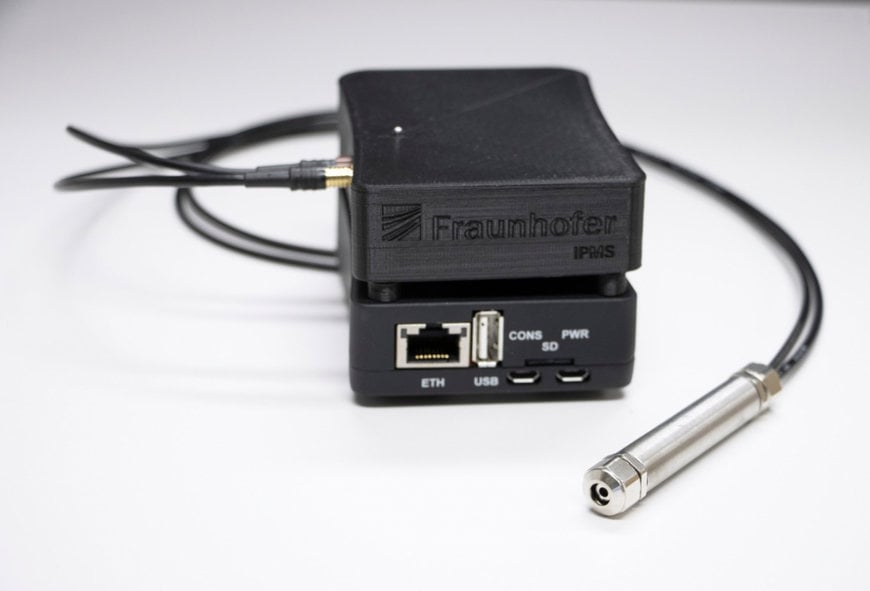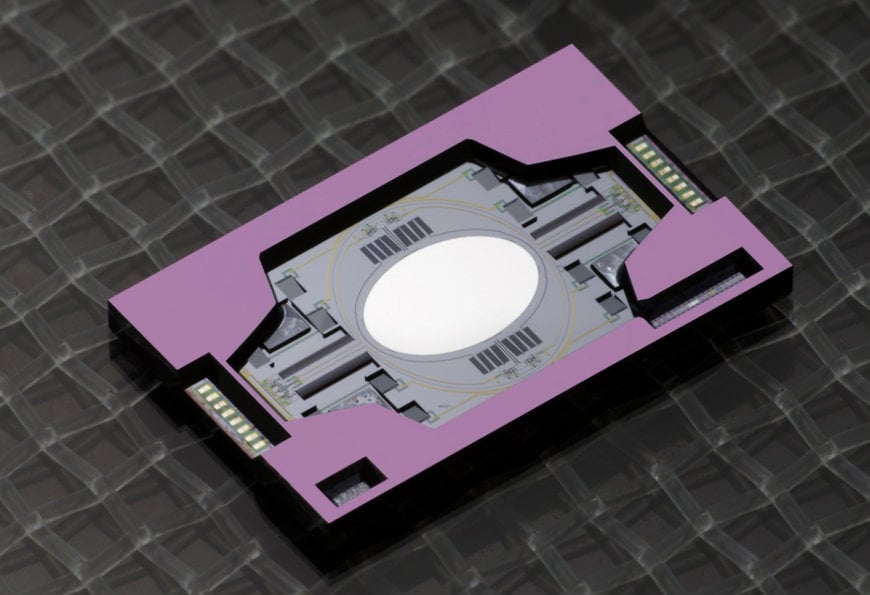www.ptreview.co.uk
06
'21
Written on Modified on
LATEST TRENDS IN MICROSYSTEMS TECHNOLOGY
Future-oriented key technologies in microelectronics and microsystems technology (MST) will be presented at the MST Congress in Ludwigsburg from November 8 to 10, 2021. The Fraunhofer Institute for Photonic Microsystems IPMS will participate at the joint booth of the Research Fab Microelectronics Germany (FMD). In numerous lectures and poster sessions, the institute will present current results and developments from the fields of intelligent MEMS-based sensor and actuator technology for applications in medical technology, chemical analytics and Industry 4.0.

Decentralized work processes, Internet of Things (IoT), Industry 4.0 and artificial intelligence (AI) pose new challenges for digitization. Novel developments in microsystems technology, especially in sensor and actuator technology, offer new solutions. Fraunhofer IPMS will present the latest technology developments in this regard at the MST Congress from November 8-10, 2021 in Ludwigsburg. In the field of intelligent sensor technology, the institute will present miniaturized sensor structures, for example capacitive micromechanical ultrasonic transducers (CMUT), which can be used for non-destructive testing. "An extensive range of CMUT sensors is already available at Fraunhofer IPMS," explains Dr. Sandro Koch, group leader Ultrasonic Components at Fraunhofer IPMS. "Integrating the preamplifier electronics into the probe housing protects the sensitive CMUTs against interference in the application. Electrical matching circuits also allow the CMUT arrays to be operated on commercially available phased array ultrasonic test systems. The acoustic properties of the CMUTs can also be adapted to customer-specific requirements," Koch continues. For those interested, the institute offers evaluation kits that can be used to test the technology directly in the application.
In the field of optical sensor technology, Fraunhofer IPMS will present microelectromechanical (MEMS) mirrors for environmental sensor technology in a lecture. The robust and miniaturized components are the core of solid-state LiDAR systems for safe autonomous driving. In another lecture, Peter Dürr explains the latest developments of Fraunhofer IPMS for realistic holography using MEMS spatial light modulators.

Medical technology is also benefiting significantly from advances in microsystems technology through the development of new solutions in diagnostics, point of care and implants. In this regard, Dr. Michael Scholles, head of the Fraunhofer Project Hub for Microelectronic and Optical Systems for Biomedicine (MEOS) and member of the Fraunhofer IPMS staff, presents a sensor system for detecting severe courses of infectious diseases using COVID-19 as an example. "In addition to severe symptoms, the SARS-CoV2 virus also causes initially mild courses that can worsen acutely. However, continuous monitoring of the condition has only been available in intensive care units (ICUs). Outside the ICU sudden deteriorations in condition are often only detected with a time delay and those affected are treated adequately too late," says Scholles. "Due to a new sensor system, which was jointly designed with eight other Fraunhofer institutes as part of the M3Infekt project, patients can remain in a familiar environment that is conducive for them and only need to be hospitalized if their condition suddenly deteriorates," Scholles further explains.
In addition to presentations and poster sessions, Fraunhofer IPMS will be represented at the joint booth of the Research Fab Microelectronics Germany (FMD). As a research association for applications and systems of micro- and nanoelectronics, six other Fraunhofer institutes of the association will present themselves at the FMD booth in addition to Fraunhofer IPMS. At the booth Fraunhofer IPMS will show a live demonstration of the Fraunhofer IPMS capacitive ultrasonic transducers, as well as insights about the institute's latest developments in chemical sensing and optical actuator technology.
www.ipms.fraunhofer.de

